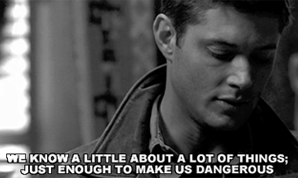Mind-blowing though the revelation may be, food science majors study the science behind food. More technically, food scientists study the makeup of food–be it chemical, biological or physical–and apply what they learn to the innovation and development of new products. You’ll get college credit for making ice cream and candy and you can make a career out of eating. Enticing as that sounds, there is one major drawback: you can no longer use the “my dog ate my homework” excuse. If you’re a food science major, you’ll be too busy eating it yourself.
What You’ll Be Doing
Food science encompasses a plethora of disciplines. From chemistry and microbiology to engineering and marketing, you’ll walk out of the major with an education broader than the cereal selection at your local grocery store (which you probably helped produce). You’ll spend the first few semesters of your university career fulfilling the prerequisites for the major–largely courses in biology, microbiology, chemistry, mathematics and physics. After cooking up a solid foundation from the prereqs, you’ll begin to hone your studies to focus on whichever career or aspect of food satisfies your appetite. Your major-specific requirements–as with most fields of study–involve smaller class sizes, specialized topics and hands-on research and study. With a major in food science, you’ll be able to impact the food industry with a career in which you literally enjoy the fruits of your labor.
Upsides

1. “Becoming a food science major helps you to be more informed about an encounter that we each experience multiple times a day: eating. You’ll understand how food is made, where it comes from, how it is processed and preserved and how it is packaged.” –Scott A. Rankin, PhD, Professor and Chair of the Food Science Department at the University of Wisconsin, Madison
2. “The food science major opens doors for both academia and industry. In either world, the food scientist will conduct research to provide solid, scientifically-based information to allow the advancement of the field and its subfields.” –Robson A. M. Machado, Masters in Biotechnology 2007, studying for PhD in Food Science at Penn State
3. “I’ve had the opportunity to learn about biology, chemistry, nutrition, engineering and microbiology while knowing that I will be able to influence the food industry when I’m done with my education.” –Shannon Glisan, B.S. from Virginia Tech 2011, studying for PhD in Food Science at Penn State
Downsides

1. “With a greater understanding of food, it’s often hard to drink or consume food for the sake of simple enjoyment. I find myself analyzing and dissecting food far too often!” –Scott A. Rankin, PhD, Professor and Chair of the Food Science Department at the University of Wisconsin, Madison
2. “Although you’ll build your career with science and problem solving, you will probably never discover the cure for a disease or the next breakthrough in genetics. This profession is more of a backstage one, in which you only ‘make the news’ if you do something wrong.” –Robson A. M. Machado, Masters in Biotechnology 2007, studying for PhD in Food Science at Penn State
3. “While the diversity of the education is an upside, it can also be a downside. You learn a little bit about a lot of subjects but don’t really become an expert in them unless you choose one to focus on for graduate study.” –Shannon Glisan, B.S. from Virginia Tech 2011, studying for PhD in Food Science at Penn State
Career Opportunities
With a market that extends to every corner of the inhabited globe, the food science industry is unsurprisingly one of the largest in the world. As long as people need to eat, food science will be a relevant and growing field (pun intended). Careers within the discipline extend far beyond desk jobs or white lab coats and food science’s multidisciplinary nature provides jobs suited for everyone. Take a look at just a few careers offered within the food industry.
1. Product Development
Product development might appeal to the creative minds of the food industry. Whether creating a new product or enhancing pre-existing products, these careers develop processes that maximize the quality, safety and performance of products on their journey to the marketplace. Who knew you could get paid for playing with your food?
2. International Development
Put those required language courses to work with a career outside of the United States. Whether working with a multinational company, say, Coca-Cola, or with organizations such as the Peace Corps or the World Health Organization, your degree in food science will allow you to expand your horizons (and your taste palate).
3. Management
If you’re partial to being large and in charge, consider a position in management. From overseeing the efficient and safe development of products to organizing the intricacies of manufacturing plants, you’ll keep food on everyone’s table.
4. Government Regulation
From the Food and Drug Administration (FDA) to the Environmental Protection Agency (EPA), food scientists can find meaningful careers in federal government agencies. You might even get a badge.
5. Quality Assurance
Government regulation sets down specific standards. Your job is to assure your company’s products stand up to their picky palates.



















